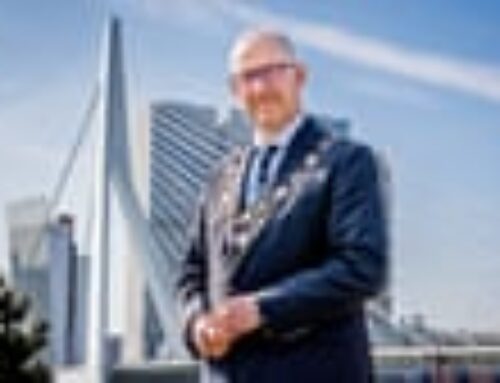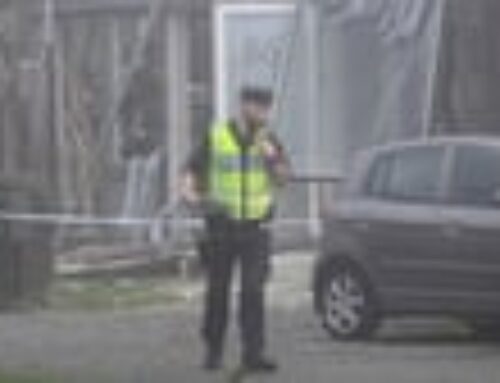Journalists and lawyers under protection or murdered on the streets, court hearings guarded by the army, witness statements anonymised, and billions in dirty drug money that leaches through society, corrupting as it goes.
This is the Netherlands, where these facts have now inspired a crackdown pitting some €500m a year against a level of organised crime that politicians fear is increasingly “undermining” public order.
The mayors of Amsterdam and Rotterdam are warning of a “culture of crime and violence that is gradually acquiring Italian traits”, with record amounts of intercepted drugs at the port of Rotterdam, extreme violence that often kills the wrong target, and €15bn to €30bn a year laundered into property, cannabis “coffee shops”, tourism and bars. Allegations that the country, better known for its tolerance and fiscal frugality, has the characteristics of a “narco state 2.0” are now being taken extremely seriously.
“We will never have as much money as the criminals opposite us, but there has never before been as much structural money to tackle them, from prevention to disrupting earning models, punishing people and protecting those on the frontline,” justice minister Dilan Yeşilgöz-Zegerius said in parliament.
“Those amounts of cash can only be made if the underworld is infiltrating the legitimate world and nesting there: in streets of shops, business parks, our estate agents and lawyers,” she said.
The Dutch government announced a new international collaboration last Monday against criminals who ship cocaine from South America via the ports of Rotterdam and nearby Antwerp in Belgium. Politicians also want to scrutinise “facilitator” businesses, expand crown witness schemes, delve into opaque financial structures and offer vulnerable young people in 16 neighbourhoods better options than crime.
Paul Vugts, a crime reporter for Amsterdam paper Het Parool, who spent six months living under police protection after getting death threats, said it was high time for action. “It took the killing of a crime blogger, the innocent brother of a crown witness against [alleged drug gang chief] Ridouan Taghi and others, then the witness’s lawyer Derk Wiersum, and last summer my colleague Peter R de Vries, the crown witness’s official confidant. We don’t have mafia like Italy, but this kind of violence is mafia-like. It is terror.”
Hans Nelen, professor of criminology at Maastricht University, agrees. “Let’s face it, when we had the killing of Peter R de Vries, the famous journalist, it resulted in a shockwave,” he said. “Politically speaking, it has woken up. We do not have empirical evidence that corruption has endemically polluted the system [but] we see serious faults.”
A serious crime unit, the Multidisciplinary Intervention Team, is being overhauled and recent investigations have revealed holiday parks where criminals may be laundering money, suspect private art galleries, dodgy transport firms and corruption at Schiphol airport. Banks have already been sanctioned for abetting money laundering, and accountants and law firms are next. Cracking encrypted phone services has generated scores of leads and arrests – most recently of suspected drug criminal Mink K in Lebanon. Public prosecutors and courts were demanding life sentences last week in the massive Marengo murder trial. Meanwhile, Rotterdam’s mayor is lobbying for all fruit containers at the port to be scanned – and for more than the €10m promised to businesses to help deal with corruption.
In Rotterdam, businesses are training 2,800 employees to combat corruption and intimidation – and Bas Janssen, managing director of the port association Deltalinqs, points out that customs, police and security firms are also sometimes implicated in collections of cocaine from containers. “The mayor of Rotterdam is knocking on the door and saying it is an urgent issue, but we have to do it together,” he adds. “Companies within ports are working in a highly competitive environment, it costs a lot of money, so we need a north/west European approach.”
Another initiative is neighbourhood youth intervention. Sharon Dijksma, mayor of Utrecht, believes every teenager saved is a win, even if her share of an €82m budget may not be enough.
“Disadvantaged young people from families with multiple problems, who often have personal challenges, are incredibly vulnerable to the claws of the criminals. So you need credible messengers, people who have seen it all before, who speak their language – and who can motivate and even discipline them back to the right side of the street,” Dijksma said.
Keeping at-risk children in the home would help, according to forensic psychologist Thimo van der Pol, who is piloting a New Zealand-inspired family intervention model in Amsterdam.
“It’s very difficult to get in touch with families that are high risk because they are afraid that their child will be put out of the house,” he said. “It is a societal problem. Parents are addicted, there’s poverty, extreme inequality, racism, debt, but the child also has to have a predisposition to develop these problems.”
While Dutch criminal gangs have been dubbed the “Mocro [Moroccan] Maffia” and ethnic minorities are overrepresented as crime suspects, Statistics Netherlands researchers say racial background is less important than age, education and socioeconomics. Some believe that to tackle criminal recruitment the Dutch need to address racial discrimination in the benefits system and jobs market, plus a grammar school system in which there is an unequal representation of children from lower socioeconomic groups and those with a non-western background.
Ruşen Koç, a coordinator at Labyrinth, a social research firm, set up the OOK foundation to advise parents on helping their child achieve in school. “Cultural background is very relevant in the Netherlands,” he believes. “It starts with school advice at the age of 11, manifests on the internship market where students with migratory backgrounds are more likely to be declined, and finally finds its way to the job market. To stop young people from going into crime we must be able to give them a better alternative.”
Others want to tackle drug use, which is at pre-pandemic levels in Europe, while cocaine use has increased in the Netherlands.
Conversely, the DenkWerk political thinktank advocates fully legalising cannabis and ecstasy, while cracking down on cocaine. Lawyer Peter Schouten thinks the country should go further: “The only solution is that the United Nations thinks about throwing out the drug treaty of 1961 and says: let’s see how we can legalise soft drugs and regulate hard drugs,” he said.
Karin van Wingerde, professor of corporate crime and governance at Erasmus School of Law, warns the crackdown cash must not be wasted on over-organisation or naive ideas. “If we try to focus on lawyers as crown witnesses, there is no incentive whatsoever as long as there is a risk that lawyers are assassinated in broad daylight,” she said.
Whether or not the long-term budget survives competing demands of climate and economic issues and a housing crisis is another question, says Vugts at Het Parool.
But justice minister Yeşilgöz-Zegerius is sending a message. “I don’t have the illusion that we are going to wipe out criminality,” she told MPs.
“But I want the Netherlands to be so unattractive that they think: ‘I don’t want to go there.’”





